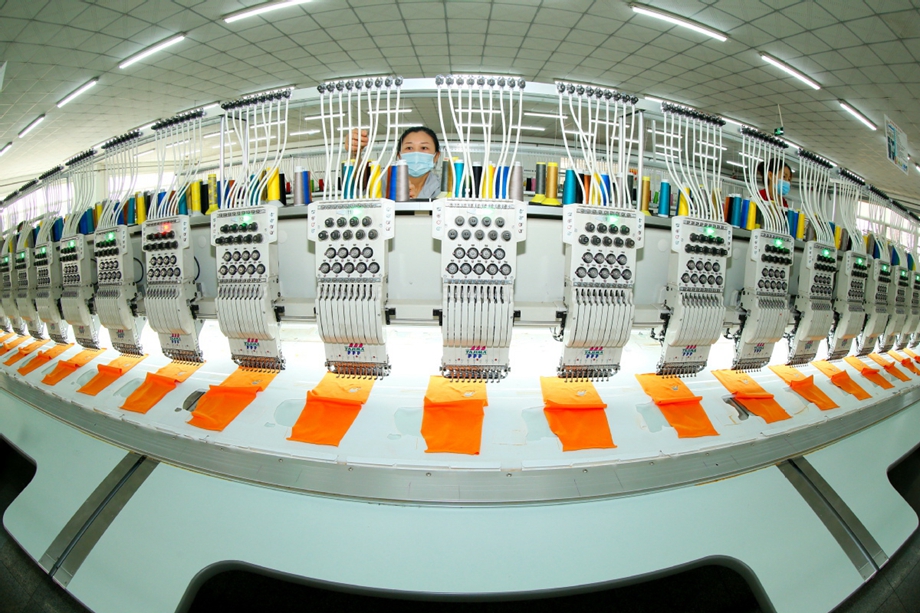Unified domestic market to further open China's door
 An embroidery worker is busy in a clothes-making factory in Qingdao, East China's Shandong province, on April 27, 2022. [Photo/Xinhua]
An embroidery worker is busy in a clothes-making factory in Qingdao, East China's Shandong province, on April 27, 2022. [Photo/Xinhua]
China's efforts in building a unified domestic market do not represent closing a door but rather opening it wider to the rest of the world so that more countries can share in the dividends of growth from the Chinese market, industry experts said.
"To build a unified domestic market is not a retreat to a planned economy before reform and opening-up, nor a path of isolation, but the beginning of China's even further opening-up to the outside world," said Wei Jianguo, vice-chairman of the China Center for International Economic Exchanges and former vice-minister of commerce.
Wei said the efforts come as the global economic recovery struggles to gain momentum, the COVID-19 pandemic continues to rage, and industrial and supply chains face challenges worldwide.
"It is also at this time that market segmentation is on the rise, especially under the dual-circulation development pattern. Elements and resources have not flowed smoothly on a larger scale," he said.
Given these conditions, to build a unified domestic market will become a key driving force amid China's formation of the dual-circulation development pattern, where the domestic market serves as the mainstay and domestic and international markets complement each other.
"It will help domestic and international markets reinforce each other by making effective use of global factors and market resources, as well as better connecting the domestic market with the international market," Wei said.
"Therefore, to build a unified domestic market does not mean China will abandon the international market. On the contrary, the vision is being put forward to further promote globalization after COVID-19 as well as the liberalization and facilitation of global trade and investment," he said.
Bai Ming, deputy director of international market research at the Chinese Academy of International Trade and Economic Cooperation, said the domestic market is precisely "the Chinese branch of the global market".
"Today, we are building a national unified market, not to close the door but to open the door wider and better. Such a unified large market also requires domestic enterprises to become qualified players and give full play to their advantages amid international competition," Bai said.
China released a guideline in April to accelerate the establishment of a unified domestic market amid efforts to build a high-standard market system and promote high-quality development.
The country defines a unified domestic market as being highly efficient, rule-based, fair and open. It will remove local protectionism, market segmentation and impediments restricting economic circulation, thus facilitating the smooth flow of products and resources on a larger scale.
"China already stands at the forefront of the global stage in terms of scale, but faces problems such as 'big, but not strong'. By moving the domestic market from big to strong, it is not to attract all overseas consumption back to China and convert all external demand into domestic demand," said Guo Liyan, a researcher with the Chinese Academy of Macroeconomic Research.
"Instead, building a unified domestic market is to effectively meet the needs of both China and the world, so that the rest of the world can share in the development and growth of the Chinese market, and work together to maintain the stability of global industrial and supply chains as well as the stable recovery of the world economy," Guo said.
Building a unified domestic market will attract more global resources to China. Meanwhile, the nation's regulations and standards will become compatible with international ones, said Han Jianfei, deputy director of industrial economics at market consultancy CCID Consulting.
"Therefore, to build a unified domestic market will help reduce restrictions on foreign investment in some regions, which will further drive higher-level opening-up. By attracting foreign investment, more countries and foreign enterprises will be able to participate in the country's economic development," Han said.








